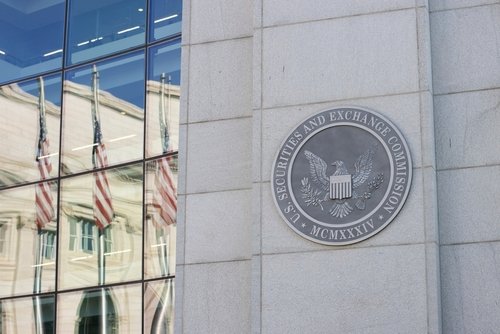The Securities and Exchange Commission (SEC) adopted amendments to Forms N-PORT and N-CEN, and will now require more regular disclosures of portfolio data from registered funds, including mutual funds.
 Meanwhile, the changes to require open-end funds to use “swing pricing” and require a daily “hard close” for relevant funds, which had been part of the same proposal, were not adopted, but also have not been abandoned.
Meanwhile, the changes to require open-end funds to use “swing pricing” and require a daily “hard close” for relevant funds, which had been part of the same proposal, were not adopted, but also have not been abandoned.
What Wasn’t Adopted
In November 2022, the SEC released a multi-part proposal to reform liquidity management in mutual funds. The proposal contained a mandatory swing-pricing component, which is a pricing mechanism that is designed to pass on the costs of redemptions to redeemers as a way of dissuading panic sales. This also would have required a hard close to trading at 4 p.m. Eastern Time. The swing pricing proposal was widely criticized as being detrimental to retirement savers and to all investors in more western time zones.
In fact, the American Retirement Association had commented that it has serious concerns with the proposal.
In the alternative, the SEC had also proposed liquidity fees, which would impose a mandatory fee if a redemption threshold is met, similar to rules adopted for money market funds in July. Both versions of the proposal contained changes to liquidity classifications to require mutual funds to invest a greater proportion of their assets into more liquid categories.
The SEC wrote in their final release that it isn’t “adopting proposed reporting amendments relating to funds’ use of swing pricing or to liquidity classifications in this release, as we are not adopting amendments to the underlying rules at this time.”
In its Spring 2024 agenda, the SEC announced it intends to repropose the swing pricing rule around April of 2025, but did not provide any additional details.
What Was Adopted
However, one element of that proposal was adopted. Registered funds must now disclose portfolio information on Form N-PORT on a monthly basis to the SEC, within 30 days of the end of the month. That information will then be made public 30 days after that. Under current rules, funds have to submit portfolio information on a quarterly basis within 60 days of the quarter’s end, and only the third quarter was made public.
Additionally, funds must report on Form N-CEN information about their liquidity service providers, including their identification and the asset classes they manage.
These changes take effect Nov. 17, 2025. Funds with net assets below $1 billion have until May 18, 2026 to comply with the requirements. The rule passed by a 3-2 vote.
The SEC argued that these changes will improve transparency for investors and help them identify important data points such as “the extent to which their funds have portfolios that overlap, as well as how funds comply with their investment objectives or deviate from those objectives.”
The Investment Company Institute expressed concern about the final rule: “this will open fund managers to a greater risk of predatory trading that will harm fund shareholders, without any corresponding benefit. ICI has also questioned the SEC’s requirement to have funds file these holdings within 30 days of month end given the volume of information required and the SEC’s history of data security breaches.”
The ICI added that “The SEC should have reproposed the new reporting requirements to ensure adequate public comment on these concerns.”
Commissioner Mark Uyeda, who voted against the rule, argued that the new rule “favors passive management strategies over active management strategies,” because they have more portfolio changes than passive funds and therefore incur more expense on greater disclosure.
Jessica Wachter, the chief economist and director of the Division of Economic and Risk Analysis at the SEC, indicated during the open hearing that the new rule would be beneficial for retirement savers because of the value of the additional disclosures to advisers and fiduciaries. The additional transparency would help “fund investors better understand their funds’ portfolio decisions,” she said.
The text of the final rule can be found here.
A fact sheet explaining the final rule can be found here.

